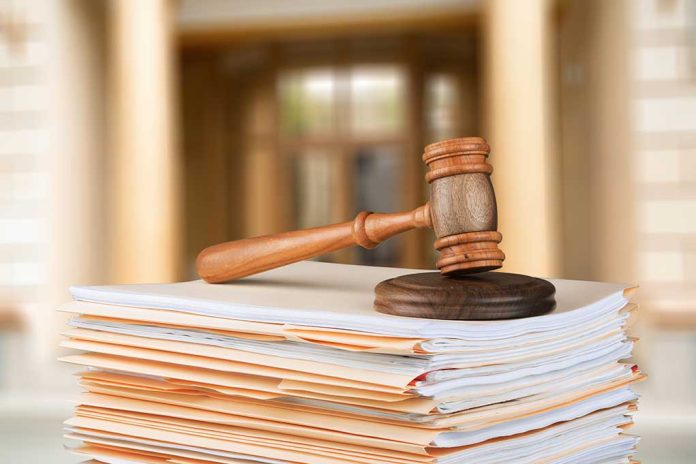
Kilmar Armando Abrego Garcia’s deportation case unveils significant lapses in government transparency and justice.
Key Takeaways
- Kilmar Armando Abrego Garcia, a Maryland father and Salvadoran national, was mistakenly deported to El Salvador.
- The U.S. government falsely claimed he is linked to the MS-13 gang; no evidence backs these allegations.
- Deported despite a court order, his case highlights contentious deportation policies under the Trump Administration.
- International criticism arises as the deportation violated a 2019 immigration order prohibiting his removal.
- Efforts to correct the deportation error meet resistance, revealing a troubling example of governmental misconduct.
The Deportation Mistake
Kilmar Armando Abrego Garcia, a Salvadoran national residing in Maryland, now faces harsh confinement in El Salvador following an erroneous deportation. Despite a U.S. court order that granted him asylum and blocked his removal due to past threats from rival gangs, Immigration and Customs Enforcement deported him on April 4. Held in a maximum-security prison, Garcia endures indefinite detention under El Salvador’s authority, raising international concern over his treatment.
The government justifies its deportation citing alleged affiliations with the notorious MS-13 gang. However, Garcia and his legal defenders firmly deny these assertions, emphasizing the absence of any substantiated evidence or criminal record that supports such significant accusations.
Strained International Relations
In reaction to his deportation, Garcia’s wife and civil-rights advocates protest the decision, arguing their suspicion of an abduction-like scenario rather than a legitimate deportation. The situation grows more complex, as El Salvador’s President Nayib Bukele expresses his inability to facilitate Garcia’s return amid U.S. governmental inertia that questions the seriousness of efforts to rectify this mistake.
This deportation was also marred by administrative mishaps within the Trump Administration, with clerical errors leading to the oversight of key court mandates.
Govt. allegation that Kilmar Abrego Garcia was in MS-13 appears "to stem from double hearsay in a document authored by a later suspended detective" https://t.co/luqFNPMcEi
— Kathleen Bush-Joseph (@KathleenBushJo2) April 15, 2025
The Legal Battle
The Supreme Court and U.S. District Judge Paula Xinis ruled against the deportation, identifying it as a violation of Garcia’s rights. A push for clarity reveals that government officials had not made substantial efforts to return Garcia to the U.S. A legal challenge ensues, with Garcia’s team filing a lawsuit demanding his return and condemning the lack of transparency within the immigration protocol used against him.
The deportation of Kilmar Armando Abrego Garcia stands as a poignant reminder of the challenges within immigration systems today. Renewed focus on these complex legal concerns reinforces the essential need for upholding objective justice and transparent governmental conduct.
Sources:
- Where is Kilmar Abrego Garcia Now? What We Know – Newsweek
- Trump admin won’t be held in contempt over refusal to return wrongly deported alleged MS-13 member Kilmar Abrego Garcia — as judge warns against ‘gamesmanship’
- Trump officials won’t share evidence accusing deported Maryland father of ‘human trafficking’ | The Independent



